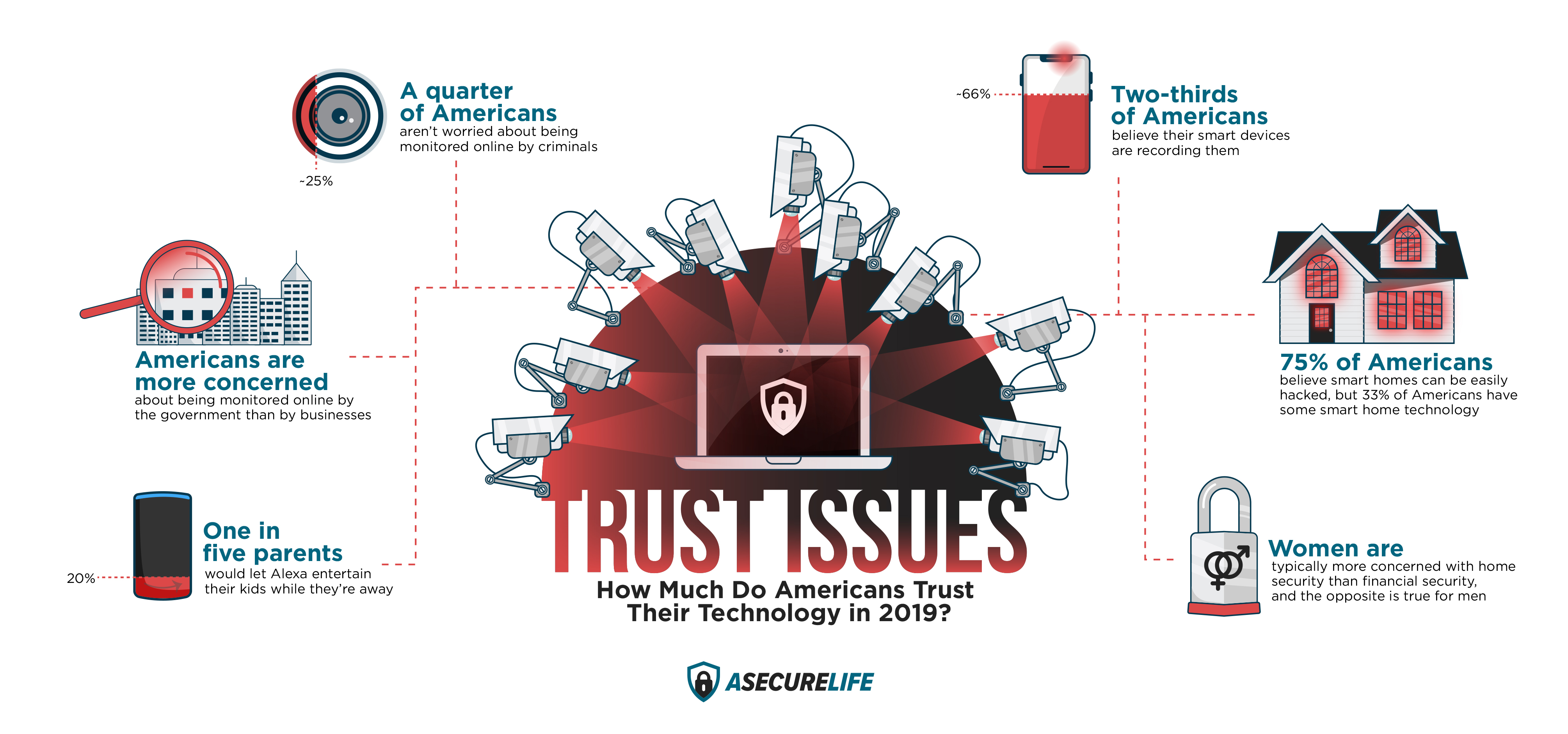Lots of homeowners are investing in modern technologies like smart assistants (such as Amazon Alexa and Google Home), smart speakers, and internet-connected security cameras. And while all this technology makes life easier at home, it also raises concerns as more people worry about things like getting hacked, being spied on, and having their identity stolen.
We surveyed hundreds of Americans across the country to get a sense for how much people trust the new-age technology filling their homes, and what kind of concerns these modern gadgets raise as far as privacy and personal security. Keep reading to see some of our most interesting findings.








